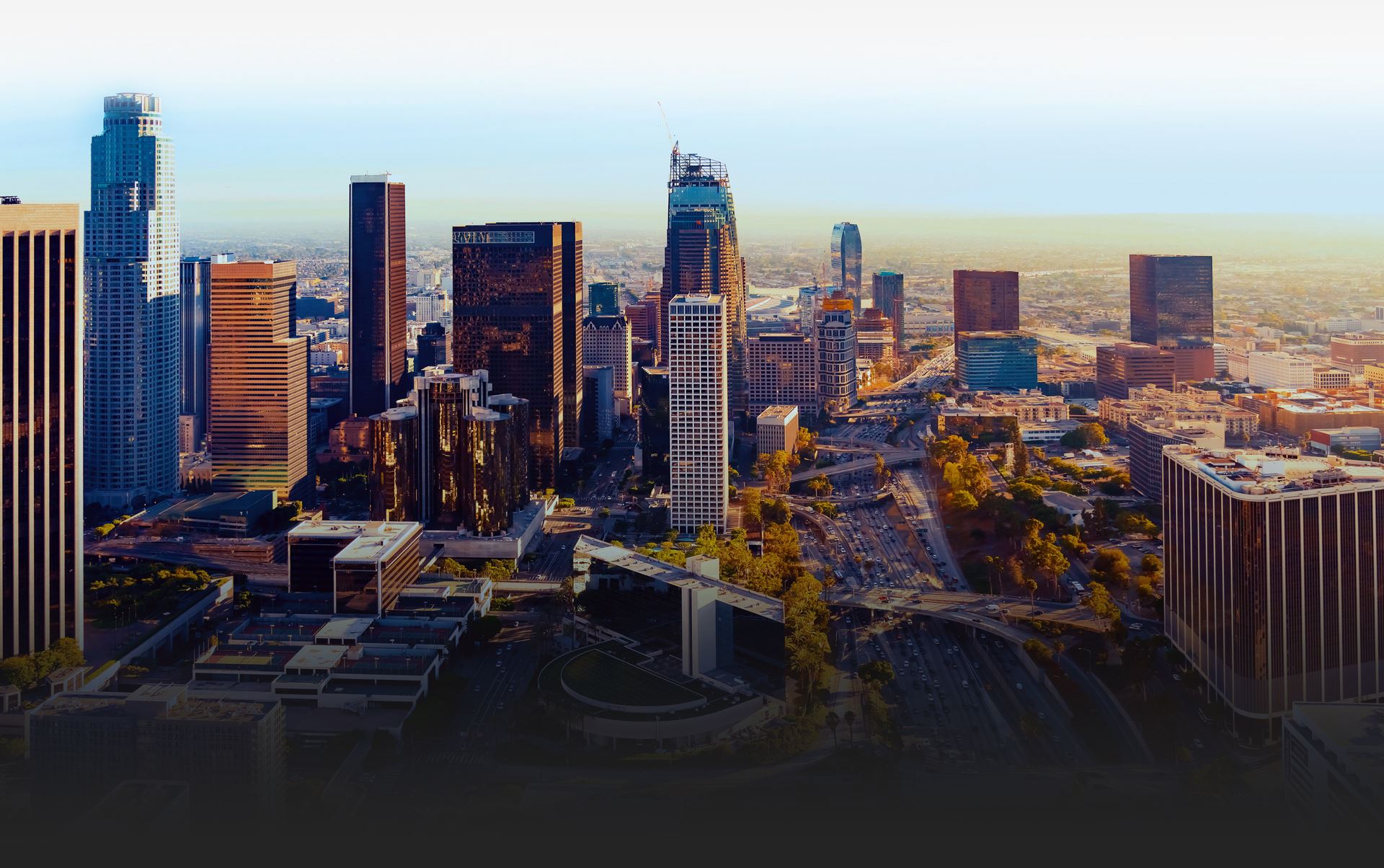
Bankruptcy Attorney
Why Bankruptcy?
Many people are needlessly afraid of the bankruptcy process. They think that it’s morally wrong or that it can permanently damage their credit rating. However, bankruptcy law was derived from as far back as the Old Testament where merchants who had debts with the king were relieved from these bonds through “jubilee” every seven years. When dealing with your own personal financial situation or that for your family, there is absolutely nothing immoral about obtaining a “fresh start”. The burden of debt off one’s shoulders is a tremendous relief and filing bankruptcy can help you take control of your life and guarantee a more secure financial future.
RHM LAW LLP has helped lift the personal and business debt from the shoulders of thousands of people in the Los Angeles and surrounding areas. We can help you move toward a debt-free life.
For a 30-minute risk-free consultation with a bankruptcy attorney at RHM LAW LLP, contact our office today. Our firm serves clients in the Los Angeles area and San Fernando Valley through offices in Los Angeles.

What is Bankruptcy?
Bankruptcy law allows for the development of a plan that will allow a debtor unable to pay his or her creditors, to resolve his or her debts by supervised division of his or her assets equally among the creditors. Some forms of bankruptcy proceedings allow the debtor to stay in business, using the revenue from the business to resolve the owed debts. Additionally, bankruptcy law is in place to grant certain debtors the chance to discharge (free themselves) of the financial obligations they have accumulated through distribution of their assets. This discharge can occur even if the debts have not been paid in full.
Bankruptcy is Federal Law
Bankruptcy law is a federal statutory law that is contained in the Title 11 of the United States Code. The Bankruptcy Code was passed by Congress under its Constitutional grant of authority to “establish…uniform laws on the subject of Bankruptcy throughout the United States." States are not able to regulate bankruptcy, but they are able to pass laws governing other aspects of the debtor-creditor relationship. Some sections of the Title 11 incorporate the debtor-creditor laws of those individual states.
Types of Bankruptcy Proceedings
The five most common types of bankruptcy are:
Chapter 7 – Chapter 7 Bankruptcy, also known “liquidation” or “straight liquidation,” is typically the fastest and easiest form of bankruptcy. Individuals, married couples, and businesses often use Chapter 7 bankruptcy protection to get rid of unsecured debts and various financial obligations such as back rent, medical bills, and credit card debt. A trustee is appointed to collect the non-exempt property of the debtor. The trustee sells it and then distributes the proceeds to the creditors
Chapter 13 – Rehabilitation of the debtor in order to allow him or her to use future earnings to pay off creditors.
Chapter 13 is typically for those who do not qualify for Chapter 7. Unlike Chapter 7, which wipes out your debt, is a way to reorganize your finances so that you are able to pay off some or all of your debts over a period of three to five years. Chapter 13, also known as a “wage earner’s plan,” requires an individual to have a regular income and be able to provide a plan to the court demonstrating they will be able to repay all or part of his/her debts.
Chapter 11 - Chapter 11 is a provision under the United States Bankruptcy Code that primarily applies to businesses seeking financial restructuring. Unlike Chapter 7, which involves liquidation, or Chapter 13, designed for individuals with a regular income, Chapter 11 allows businesses to continue operating while developing and implementing a plan to reorganize and repay creditors. This reorganization process involves negotiating with creditors, proposing a repayment plan, and obtaining court approval. Chapter 11 bankruptcy is a complex and resource-intensive process, often used by larger corporations or businesses aiming to regain financial stability and avoid complete liquidation.
Chapter 12 - Chapter 12 is designed for family farmers and fishermen facing financial distress. Similar to Chapter 13, Chapter 12 allows eligible debtors to create a reorganization plan to repay their creditors over time. This chapter provides unique advantages tailored to the economic challenges of family farming and fishing operations, including accommodating seasonal income variations. Chapter 12 bankruptcy offers a structured framework for family agricultural businesses to manage debts, restructure obligations, and work towards long-term financial stability while preserving their operations.
Chapter 20 - Chapter 20" is an informal term used in bankruptcy to describe a strategic combination of Chapter 7 and Chapter 13 filings. In a Chapter 20 bankruptcy, an individual or business initially files for Chapter 7 liquidation to discharge unsecured debts, followed by a subsequent Chapter 13 filing to create a repayment plan for remaining debts that cannot be discharged under Chapter 7. While the Bankruptcy Code does not officially recognize Chapter 20, this sequential approach allows debtors to benefit from the advantages of both chapters, strategically managing their financial obligations and working towards a comprehensive debt resolution strategy.
To speak to a bankruptcy lawyer at our firm, please call us today at (213) 344-0043. We offer 30 minute risk-free consultations and serve our clients in English, Spanish and Farsi.

Bankruptcy Services
Discover the Right Option for You
- Alternatives To Bankruptcy
- Bankruptcy Do's & Don'ts
- Bankruptcy Qualification
- Chapter 11
- Chapter 13
- Small Business Bankruptcy
- Chapter 7 Bankruptcy For Consumers
- Chapter 7 for Businesses
- Creditor Rights in Bankruptcy
- Debt Consolidation
- Debt Settlement
- Mandatory Disclosures
- See All the Work We Can Do For You
- The Bankruptcy Process
Benefits of Filing for Bankruptcy
For most people, bankruptcy is a straightforward legal process that can be accomplished quickly and without complications. A lawyer at RHM LAW LLP can evaluate your situation and answer your questions in a 30-minute risk-free consultation.
You Can Stop Foreclosure, Repossession & Creditor Harassment
Once RHM LAW LLP files for bankruptcy, all collection actions cease! Even if the foreclosure process has begun, we can prevent foreclosure and allow you to keep your home. We can stop repossession and garnishment actions. Creditors and collection agencies can no longer call you. The harassment ends upon walking through our doors. With a personal bankruptcy filing, you can get the financial breathing room you need.
Fast Action
An initial discussion with RHM LAW LLP takes about an hour for a simple Chapter 7 bankruptcy. Meetings involving more complex individual or business bankruptcy cases can take somewhat longer. After that, our firm can act immediately to stop repossession and foreclosure and put you on the road to financial recovery.
Flat Fees & Payment Plans
One of our bankruptcy attorneys in Los Angeles can prepare, file, and appear with you in Court for either a Chapter 7 or Chapter 13 filing for a convenient flat fee. In Chapter 13 cases, you will only need to pay the court filing fee up front. We also offer extended payment plans so that you can get help today without worrying about limiting your immediate cash flow.
To speak to a bankruptcy lawyer at our firm, please call us today at (213) 344-0043. We offer 30 minute risk-free consultations and serve our clients in English, Spanish and Farsi.


What Sets Our Firm Apart?
-
We are MultilingualOur experienced team of attorneys serves their clients in English, Spanish and Farsi.
-
We File Bankruptcy Cases DailyOur Certified Bankruptcy Specialists have decades of combined experience exclusively handling bankruptcies.
-
We Are CompassionateWe understand first hand what you are going through, as two of our employees have personally filed for bankruptcy.
-
Using a Bankruptcy Attorney Increases Your Chance of AcceptanceOur top-rated bankruptcy attorneys will help increase your odds of acceptance by correctly filling out all paperwork. Our attorneys will also provide a schedule with what needs to be completed and include the deadline.
-
Servicing Los Angeles County and Southern CaliforniaOur top-rated bankruptcy attorneys represent clients that are facing financial crises in Southern California. Our law firm is recognized as the “Home Savers.”
-
Our Law Firm is Recognized in the Top 5% of Law Firms
Matt Resnik was selected as a Superlawyer for 11 years in a row and Roksana D. Moradi-Brovia has been selected for 7 years in a row. Partner with excellence when choosing your Los Angeles bankruptcy attorney.
-
We Can Help You Decide if Bankruptcy is Right for YouOur top-rated bankruptcy attorneys can help you decide if chapter 7 bankruptcy, chapter 11 bankruptcy, or chapter 13 bankruptcy is right for your specific situation.
-
Work With a Certified Bankruptcy SpecialistMatt Resnik, M. Jonathan Hayes, and Roksana D. Moradi-Brovia are Certified by the State of California as Bankruptcy Specialists. This is the highest degree of certification for the field of bankruptcy.